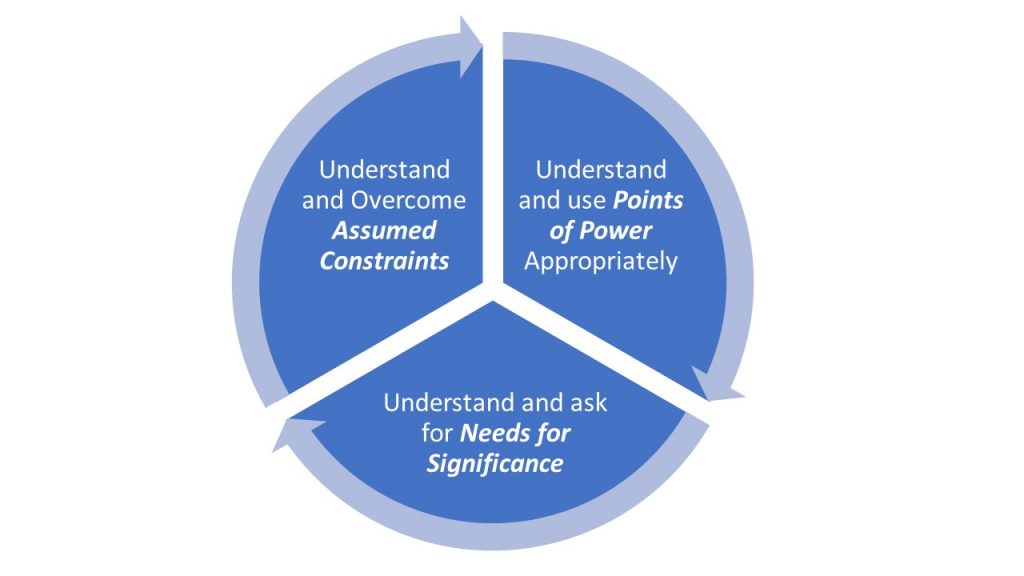Servant Leadership and Individual Contributors

It is quite some time since the term “Individual Contributors” made an entry into the Corporate HR jargon. We assumed that almost everyone starts off as an individual contributor and then grows in the organisation to take up leadership roles and responsibilities. Thus, the term Individual Contributor came mostly to be associated with the bottom of the pyramid in the corporate hierarchy. Then companies started realizing that there might be value in encouraging Individual contributors to stay in that role, especially if they are experts in some field or technology. Companies like IBM even created curated career paths for them, so they don’t have to ever take up managerial positions to grow up the corporate ladder, but can reach senior positions without taking up management positions at all.
Studies reveal that developmental efforts for Individual Contributors is focused more on their technical or task-oriented skills and might be for specific roles. Focused investment in “Leadership Development” of Individual contributors was not a focus. Jack Zenger in his article in the Forbes Magazine (way back in Feb 2014) claimed that Individual contributors are “Forgotten Leaders” in investment from organisations on Leadership development activities. Several Organisations ask, “What has leadership development got to do with Individual contributors?”
That led me to the question. How about Servant Leadership? Can an organisation really develop a Servant Leadership Culture by focusing only on who we traditionally call leaders? And the answer is “no”. A Servant Leadership culture requires that we focus on this group of “forgotten leaders” as much as we focus on traditional leaders. All individual contributors are “leaders” if we go by the definition “Leadership is Influence”. That is why I refer to Individual Contributors as Self-Leaders.
What do these Self-Leaders need to do so they can take the best advantage of a Servant Leadership culture in the organisation? What attributes or mindset changes or behavioural changes do they need to embrace so they thrive in a Servant Leadership Culture and make the organisation successful? My studies show that there are three areas where they need to develop. (Ken Blanchard and Susan Fowler articulate this better in their book “Self-Leadership and the One Minute Manager”)
- Understand and overcome one’s Assumed Constraints: Susan Fowler speaks about the Elephant syndrome in several of her writings to explain Assumed constraints. The fact is that several of us end up assuming that there are several constraints that prevent us from becoming the best we can be. A significant Self-leader will strive to understand ones assumed constraints and look for ways of overcoming those. They will break the “permission paradox” (a felt need to have explicit approval of someone before taking any action) and climb up the Freedom Ladder/ Autonomy ladder to become empowered employees and team members.
- Understand and use “Points of Power” the right way: Everyone, immaterial of any position or seniority, has some powers. As history proves repeatedly, it is not the absence of power that differentiates infamous leaders from the excellent ones. It is how they (choose to) use their powers. A Self-leader will understand his/her own points of power and the points of power of their team members. Once they have this understanding, they will then use this knowledge to bring fulfilment to self and success to the team. Self-leaders aware of their points of power will use such knowledge to collaborate rather than for conflict.
- Understand what you “need” to be significant: Self-leaders need to understand that chasing success is not the right thing to do. Individual success might bring in some temporary happiness, but it is in adding value to others that we find fulfilment. This is what we call significance. Self-Leaders will know what they need to be significant and they will know the right way to ask for the same. This awareness of your own “significance needs” will help you understand the current development stage that one is in. This will help in prioritising your goals so you can focus on the most significant ones.
These are the building blocks for Self-Leadership. So let us not forget the “Individual Contributors”. Let us invest in them and make them significant Self-leaders. This will speed up the spread of Servant Leadership culture within the organisation.
____________________________________________________

This Article is written by Dr. Madana Kumar, PhD, UST’s own Servant Leadership Evangelist. You can contact him here, or connect with him here.
3 replies on “Individual Contributors or Self-Leaders? The Servant Leaders view”
Also that we would do without your very good phrase
I have found the answer to your question in google.com
I hope, you will find the correct decision.
Absolutely with you it agree. It is excellent idea. I support you.
All above told the truth. Let’s discuss this question. Here or in PM.
http://bestunggulan.com/wp-content/vag/
The second premise of servant leadership “I am the leader because I serve” begins with a rooted ambition to be a leader or personal ambitions of a leader. [14] Greenleaf’s definition left much room for speculation because it lacks specifics. Servant leadership is handled throughout the literature by many different dimensions.
After all, what a great site and informative posts, I will upload inbound link – bookmark this web site? Regards, Reader.